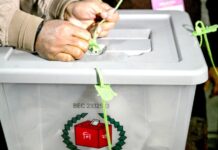Sacrifice is an important act in worship. Eid-ul-Azha represents the true essence of sacrifice. Amid the coronavirus outbreak, the threat of contagion is there at the Qurbani Haats (markets). We are assuming that social distancing would not affect people, but how much we have worked in this regard? Personally, I don’t want to see the cattle farmers face loss at this peak time of selling. If the sacrificial animals are not sold, farmers will be the worst sufferer, anyone would agree with this.
In this digital world, anyone can open online markets to sell their livestock, especially sacrificial, and it is praiseworthy that some are already in operation. Eleven years back, a farmer called me and requested to buy a cow from him. I said, since I haven’t seen the cow, how can I buy it? He then requested me to give him my email address and right away I received couple of photos of the cow from different angles, which made me convinced to buy the cow. As technology has improved, we are also moving onward in selling the sacrificial animals at the online platforms, supported by the public-private initiative.

We are currently witnessing the world’s deadliest pandemic ever. Keeping the risk of COVID-19 infection in mind, the government has planned properly to work it out. I have talked with the ministers concerned and government offices regarding how digital platform could work perfectly for sellers, buyers, butchers and cleaners. In the past few days, the situation has changed a lot with support from the government regarding the Qurbani Haat (market for sacrificial animals). The government has taken a very effective initiative. Each district administration has been given the responsibility to create an online market based on demand and supply of the respective district. Most of the district has already created online platforms and those who could not create a website have opened a page on Facebook. Sales have also started. Besides, names and addresses of butchers, based on areas, have also been added there. The government is also concerned about running coronavirus test for the involved people, three days before the Eid-ul-Azha.
A few months back, I said the Union Digital Centres (UDCs) could play a vital role. There are 5,875 of them and they could be a local hub for the online haat. The Minister for Local Government, Rural Development and Cooperatives Tajul Islam said sacrificial animal haat will be set up ahead of the holy Eid-ul-Azha, maintaining all health rules and ensuring social distancing. After my discussion with Tajul Islam and ICT State Minister Zunaid Ahmed Palak, couple months back, government took the recommendations very seriously and took the right measure. With the introduction of online animal market and regular haats, maintaining social distancing and hygiene, this would be a wonderful venture, if the plan really works out, as said by the minister. I believe this would be the greatest digital achievement for the farmers, traders, pious buyers, butchers and all related people, during the time of COVID-19. We know that if these plans were taken at least four months back, things could have been way different, but still at a rapid pace, government has very efficiently worked it out, which is really praiseworthy.
Coronavirus infections are more common among workers in various meat processing factories and slaughterhouses in Europe, America and Australia. Coronavirus infections have been reported in such organizations in various European countries, including the United Kingdom, France, Germany and Spain. During the last week of April, 50 people were found infected with the coronavirus at JBS SA Beef Facility in Colorado, USA. At the Cargill Inc. meat packaging plant in Pennsylvania, 160 people were infected. The virus was found in bodies of more than 1,300 workers at a slaughterhouse at North Rhine-Westphalia in Germany’s Guterreslo town, during the third week of June. Lawrence Young, a professor of molecular oncology at the University of Warwick, said, “Cold and damp places have the ideal environment for long-term survival and spread of coronavirus.

I am certain that well-planned measures for cleaning after the sacrifice has already been taken by the city corporation. We know that Qurbani and the cattle market has a great bondage with the rural economy, as well as our emotion. Let the digital Haats keep most of us connected to this bondage this year. Our leather industry also depends a lot on this sacrificial event. Therefore, in order to protect every related sector and people involved with it, emphasis should be laid on this aspect. Meanwhile, the flood situation is getting worse day by day. It has been reported that cattle are being forced to be sold at a very low price due to rise of floodwaters in Haor areas. Different online shops have come forward to solve the problem of selling sacrificial animals. These websites have started selling cows at different prices as per demand of the customers. Dhaka North City Corporation has launched a platform called ‘Digital Haat’ to sell cows online, along with the government’s ICT division, e-commerce association of Bangladesh and Bangladesh Dairy Farm Association. According to media reports, three ministers of the government have already bought sacrificial cows from the online platform ‘Gorur Haat’.
Dear readers, in this perilous time of the pandemic, let us all make an extra special effort to be kinder, more compassionate and attentive to the needs of others than ourselves. The pandemic itself is a sign, a wider avenue for us to be empathetic in a meaningful way. Eid-ul-Azha, amid the coronavirus outbreak, not only brings forth a light of celebration, but also amplifies the logistical challenges in the process of Qurbani. It will take the true meaning of sacrifice this year. A sacrifice that must ensure purity, good intention and holiness. A sacrifice that will be illuminated by maintaining safe distancing, proper handling and disposal, and test our strength as a community.









